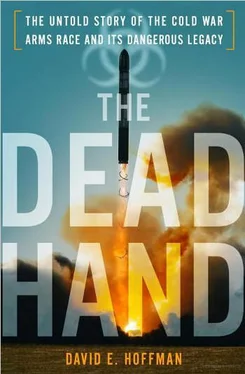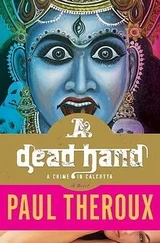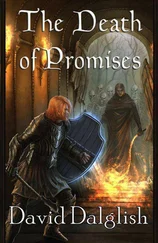“There were already bread lines in Moscow like those for sausage two years before,” Chernyaev recalled. “I took a car on Saturday and drove all around Moscow. Bread stores were closed or absolutely empty—not figuratively, but literally!” 2He wrote in his diary on March 31, “I don’t think Moscow has seen anything like this in all its history—even in the hungriest years.” And, he added, “on that day, certainly, nothing remained of the image of Gorbachev.” 3
The aggrieved losers in this vortex of change began to resist. They included the military, which felt humiliated as soldiers and tanks retreated from Europe, only to discover they were almost destitute at home; the party elite, which lost its monopoly on power; and the security agencies, primarily the KGB, who saw themselves as guardians of a power structure under siege and a country near disintegration. Gorbachev attempted to buy time. He tried to satisfy the disillusioned old guard while hanging on to the allies of perestroika , the progressive intellectuals, but he could not do both, and succeeded at neither. The progressives abandoned him for Yeltsin, a more promising agent of change. The hard-liners pushed Gorbachev to use force, and declare a state of emergency to reassert control in the old Soviet tradition. A coterie of the hardliners, from the KGB, the military and the party, would soon take matters into their own hands.
In earlier years, Gorbachev and Reagan, in a courageous break with the past, managed to slow the speeding locomotive of the Cold War arms race. After some hesitation, Bush also realized Gorbachev was a man to do business with, a negotiating partner, an anchor in a stormy sea.
Then the anchor broke loose. Gorbachev lost control.
Very early on the morning of Sunday, January 13, Soviet tanks, led by members of Alpha Group, an elite KGB special forces unit, attacked pro-independence demonstrators at the television tower in Vilnius, Lithuania. The troops opened fire and killed more than a dozen people in a massacre that caused a wave of apprehension and revulsion. The assault had been secretly orchestrated in Moscow by the hardliners around Gorbachev, perhaps in expectation that Gorbachev would have no choice but to order a crackdown and state of emergency. On the night of the assault, Kremlin records showed the hard-liners met in the office of Gorbachev’s chief of staff, Valery Boldin, from 7:15 P.M. until 2:30 A.M., shortly after the shooting began. 4
The day after the Vilnius massacre, speaking to parliament, Gorbachev insisted he had known nothing about the violence until it was over, “when they woke me up.” He blamed independence leaders in Lithuania for provoking it. His comments didn’t answer the central question: either Gorbachev, as commander in chief, was in control of his own security forces or he wasn’t. Both were disturbing possibilities. Liberals who had been at Gorbachev’s side, appalled by the use of force, quit the party, including the entire editorial board of Moscow News , a leading voice of perestroika , which published a devastating joint statement from the intellectuals. Chernyaev wrote in his diary on January 14 that Gorbachev’s address to parliament was “a disorganized, confusing speech full of rambling digressions…” 5
“I was in complete despair,” said Chernyaev, perhaps Gorbachev’s most loyal adviser. He wrote a letter of resignation, admonishing Gorbachev that “…you chained yourself to policies that you can only continue by force. And so you contradict your own philosophy.” The hard-liners were “pathetic and shameful,” Chernyaev said. “They discredit you, making the center look ridiculous. And you’re following their logic, which is basically the code of the streets—you beat me up… so now I’ll call my big brother and you’ll get it!”
“You’re losing the most important thing that we’ve gained from new thinking—trust,” he wrote. “You’ll never be trusted again, no matter what you do.” Chernyaev reminisced about his partnership with Gorbachev “the great innovator and father of perestroika .” But “now I don’t recognize or understand him.” 6
However, Chernyaev never gave Gorbachev the letter, and did not resign. In the days that followed, Gorbachev did not order more repression, as the hard-liners hoped he would. But at the same time, Chernyaev said, Gorbachev never figured out that his public appeals to reason and negotiation could not halt the Baltic secession. It was all but inevitable.
———
The American and British biological weapons team departed the Soviet Union on the weekend of January 19–20, even more worried than when they arrived. In late January and February, the teams met in Washington to go over their notes and write a report. On March 5, the new British prime minister, John Major, told Gorbachev of his concerns about the biological warfare program during a tête-à-tête meeting in Moscow. On March 25, Baker again raised it in papers sent to Gorbachev that outlined concerns raised by the January visits. 7Neither Major nor Baker said a word about it in public.
When Pasechnik’s revelations were first made, the rationale for keeping it secret was to avoid creating problems for Gorbachev. Now Gorbachev’s situation was far more vulnerable. A new strategic arms treaty, years in the making, was finally nearing completion. If details of a massive Soviet biological weapons program and blatant violation of earlier treaty commitments became public, it would swiftly wreck any chance for Senate ratification.
On April 5, Braithwaite, the British ambassador, came to see Chernyaev, this time with a formal, written message from Major, a detailed, damning and very accurate list of findings based on the outcome of the January visits. 8On May 11, Foreign Minister Bessmertnykh delivered an answer to Baker’s papers from March, continuing the cover-up on every point.
In late May, Margaret Thatcher, now out of office, visited Gorbachev in the Kremlin. After a dinner with him, she returned to the British ambassador’s residence, where Braithwaite was waiting, along with the American ambassador, Matlock, whom Thatcher had invited. With an after-dinner drink in her hand, Thatcher settled into a chair in Braithwaite’s study, turned to Matlock and said, “Please get a message to my friend George,” meaning the president.
“We’ve got to help Mikhail,” she pleaded. “Of course, you Americans can’t and shouldn’t have to do it all yourselves, but George will have to lead the effort, just as he did with Kuwait.” She paused, Matlock recalled, and then explained why she felt so strongly. “Just a few years back, Ron and I would have given the world to get what has already happened here.” She wanted Bush to invite Gorbachev to the Group of 7 summit in London in July and deliver a massive Western aid package. Matlock hesitated. The Soviet economy was a shambles, and pouring aid into it might be a waste, he said. Thatcher glared. “You’re talking like a diplomat!” she responded. “Just finding excuses for doing nothing. Why can’t you think like a statesman? We need a political decision to support this process, which is so much in everyone’s interest.”
Matlock sent Thatcher’s message to Bush that night. Then he wrote in his own journal, “I think that Mrs. Thatcher is right.” 9
On June 17, Valentin Pavlov, the prime minister and one of the hardliners who had planned the Vilnius attack, asked the Supreme Soviet to give him extraordinary powers that were granted only to the president. He did not tell Gorbachev beforehand. It was a daring power grab, but Gorbachev reacted only with a statement that he hadn’t endorsed the proposal. In a closed meeting of the assembly, other hardliners at the center of the gathering storm—KGB Chairman Vladimir Kryuchkov, Defense Minister Dmitri Yazov and Interior Minister Boris Pugo—also backed Pavlov’s move.
Читать дальше












